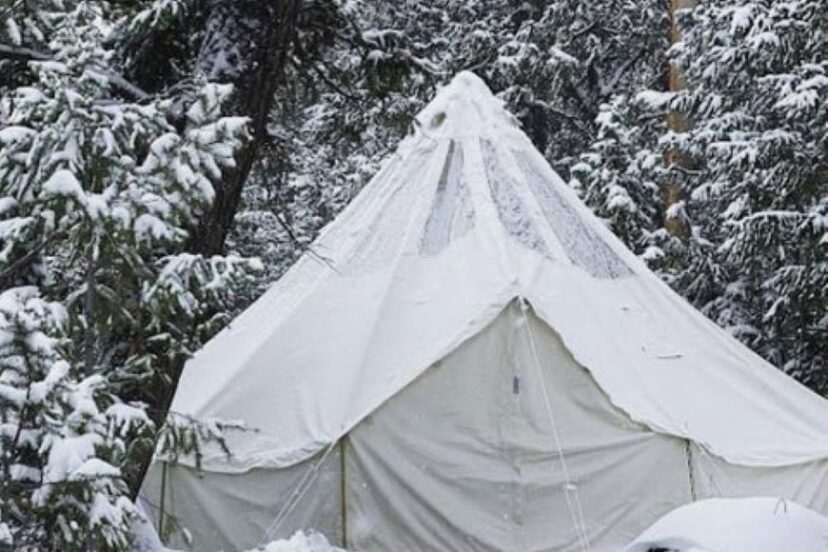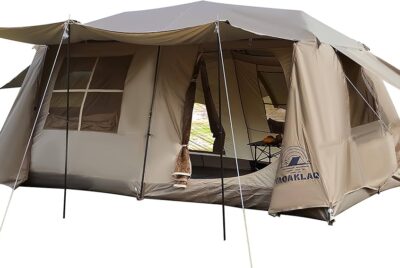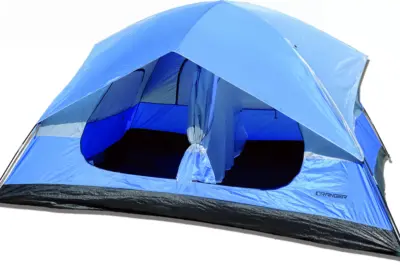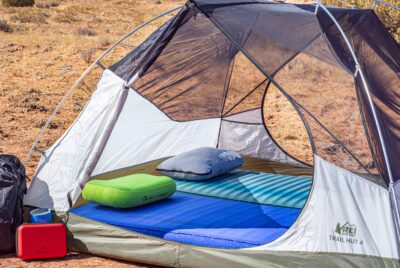Winter Camping for Cozy Cold-Weather Adventures
Introduction:
Winter camping has a magical allure, offering a serene landscape blanketed in snow and the promise of peaceful solitude. However, to truly savor the frosty beauty of the outdoors, a reliable winter tent is your key to comfort and safety. In this comprehensive guide, we’ll explore the world of winter camping, unveiling the features that make them essential for cold-weather excursions. Whether you’re a seasoned winter camper or a newbie looking to embrace the chill, let’s dive into the warmth and coziness these tents bring to the snow-covered wilderness.
The Beauty of Winter Camping:
Winter camping tents are designed to withstand the unique challenges posed by cold and snowy conditions. Let’s unravel the reasons why these tents are crucial for an enjoyable winter camping experience:
1. Cold-Weather Protection: Your Shield Against the Elements
The star feature of winter tents is their ability to provide a barrier against the biting cold. Unlike three-season tents, these shelters are fortified with features such as reinforced fabric, sturdy poles, and a robust frame designed to withstand snow loads and icy winds. A well-designed winter tent keeps you warm and protected even when the temperatures plummet.
2. Insulation: Keeping Cozy in the Cold
Winter tents prioritize insulation to trap heat and keep you warm during frigid nights. Look for tents with double-walled construction, where the inner layer provides insulation while the outer layer protects against the elements. Some tents also feature additional insulation in the form of thermal fabric, ensuring you stay snug and comfortable despite the winter chill.
3. Snow-Shedding Design: Preventing Buildup
One of the challenges of winter camping is dealing with snow buildup on your tent. Winter tents often incorporate a snow-shedding design, where the steep angles of the roof prevent snow from accumulating. This not only ensures the structural integrity of the tent but also prevents excess weight that could compromise your shelter during heavy snowfall.
Choosing the Perfect Winter Tent:
Selecting the right winter camping tent is crucial for a safe and enjoyable cold-weather adventure. Here’s a breakdown of key factors to consider:
1. Season Rating: Tailoring Your Tent to Winter Conditions
Winter tents are typically labeled as four-season tents. However, not all four-season tents are created equal. Some are better suited for milder winter conditions, while others are built to handle extreme cold and heavy snow. Consider the specific winter conditions you’ll be facing and choose a tent with the appropriate season rating.
2. Weight and Portability: Balancing Durability and Convenience
While winter tents are built for durability, it’s essential to consider their weight and portability, especially if you plan on trekking to your campsite. Look for lightweight materials without compromising on insulation and durability. Many modern winter tents are designed with lightweight yet robust materials, making them suitable for backpacking in snowy terrain.
3. Ventilation: Managing Condensation
Proper ventilation is crucial in a winter tent to manage condensation. Cold air outside and warm air inside can lead to moisture buildup, which can make the interior damp and compromise insulation. Choose a tent with adjustable vents and mesh panels to facilitate airflow, allowing you to regulate temperature and minimize condensation.
4. Here Are Links to the Leading Brands of Winter Camping Tents
- The North Face: (Amazon)
- Description: The North Face is a well-known outdoor brand, and they offer a range of winter camping tents known for their durability and weather resistance.
- Mountain Hardwear: )Amazon)
- Description: Mountain Hardwear is recognized for its high-quality outdoor gear, including winter camping tents. Their tents often feature innovative designs and advanced materials.
- Marmot: (Amazon)
- Description: Marmot is a popular brand for outdoor enthusiasts, and their winter camping tents are designed to withstand harsh weather conditions while providing comfort and functionality.
- REI Co-op:
- Description: REI is a cooperative that produces its own outdoor gear, including winter camping tents. Their tents are often designed with input from outdoor enthusiasts.
- Black Diamond:
- Description: Black Diamond is a brand that specializes in outdoor equipment, including winter camping tents. Their tents are designed for alpine and cold-weather conditions.
- Big Agnes:
- Description: Big Agnes is known for its lightweight and versatile tents. They offer winter camping options with features like strong poles and durable fabrics.
- Hilleberg:
- Description: Hilleberg is a premium brand, known for its high-end and extremely durable tents. They focus on quality materials and craftsmanship, making them suitable for winter expeditions.
- MSR (Mountain Safety Research): (Amazon)
- Description: MSR is known for its reliable outdoor equipment, and their winter camping tents often incorporate advanced technology to provide protection in extreme conditions.
Remember to consider your specific needs and the conditions you’ll be facing when choosing a winter camping tent. Additionally, it’s recommended to read user reviews and expert opinions for more insights.
Tips for a Cozy Winter Camping Experience:
Now that you’ve chosen your winter tent, here are some tips to enhance your cold-weather camping adventure:
1. Layer Up: Stay Warm Inside and Out
Bring layers of clothing to stay warm both inside and outside the tent. A high-quality sleeping bag rated for winter conditions, insulated sleeping pad, and thermal clothing are essential for a cozy night’s sleep. Dressing in layers allows you to adjust your clothing to your comfort level.
2. Site Selection: Strategic Camping for Comfort
Choose your campsite wisely. Look for flat ground away from potential hazards like overhanging branches or areas prone to avalanches. Consider the direction of prevailing winds and set up your tent to minimize exposure. Additionally, camping near natural windbreaks, like rock formations or dense trees, can provide added protection.
3. Campfire Safety: Warmth Without Risk
While a campfire adds to the winter camping experience, it’s essential to follow safety guidelines. Use a portable stove for cooking, and if you plan to have a campfire, keep it small and well-contained. Clear away snow to create a safe area, and never leave the fire unattended.
Conclusion:
Winter tents are your ticket to embracing the enchanting beauty of snowy landscapes with comfort and warmth. With features like cold-weather protection, insulation, and a snow-shedding design, these tents are designed to meet the unique challenges of winter camping. By considering factors like season rating, weight, and ventilation, you can choose a tent that transforms your winter adventure into a cozy and memorable experience.
Frequently Asked Questions:
1. Can I use a winter camping tent in milder seasons?
Yes, you can use a winter camping tent in milder seasons. Four-season tents are designed to handle a wide range of conditions, including winter, spring, summer, and fall. However, keep in mind that winter tents may provide more insulation, which can make them warmer than necessary in mild weather.
2. Does winter camping require a specific type of sleeping bag?
While winter camping tents provide insulation, it’s crucial to pair them with an appropriate sleeping bag rated for winter conditions. Look for sleeping bags with a temperature rating that matches the expected low temperatures of your camping destination. This ensures you stay warm and comfortable throughout the night.
3. How do I prevent condensation in a winter camping tent?
Condensation can occur when warm air inside the tent meets the cold exterior. To prevent condensation, ensure proper ventilation by using adjustable vents and mesh panels in the tent. Avoid breathing directly onto the tent walls, as this adds moisture to the interior. Additionally, consider leaving a small opening in the tent door for continuous airflow.
4. Can I use a winter camping tent for mountaineering?
Many winter camping tents are suitable for mountaineering, offering the durability and features needed for high-altitude conditions. However, for extreme mountaineering, specialized mountaineering tents with additional features like reinforced frames and snow flaps may be preferred. Check the specific tent’s specifications to ensure it meets the requirements of your mountaineering adventure.
5. What should I do if my winter camping tent collapses under heavy snow?
If your tent collapses under heavy snow, carefully and safely remove the snow from the tent exterior. Reinforce the tent structure by tightening guy lines and adjusting tent stakes. If possible, create a snow pit around the tent to divert snow away. In extreme cases, consider relocating to a more sheltered spot. Regularly check weather forecasts to anticipate heavy snowfall and be prepared to manage snow buildup proactively.




